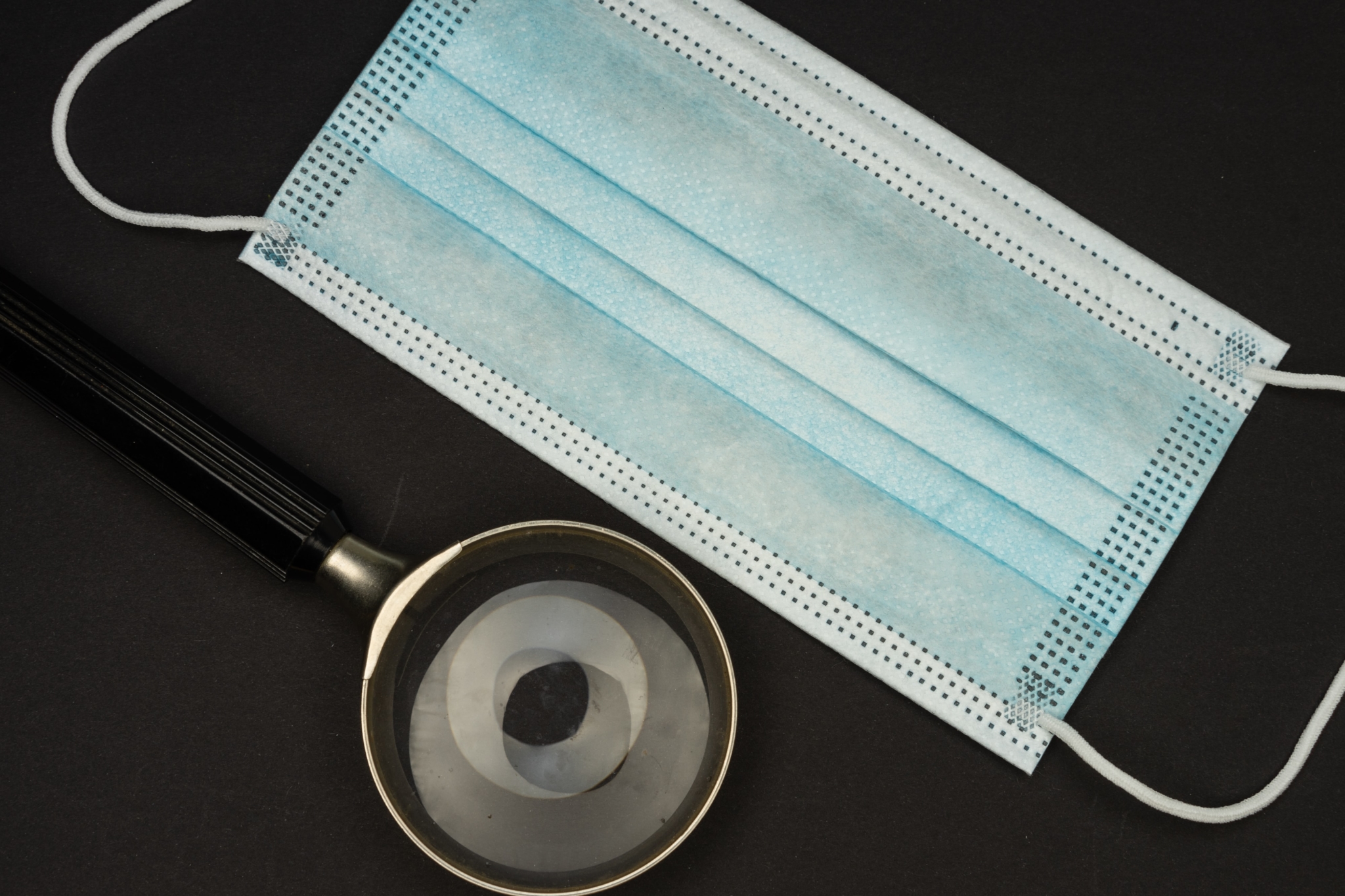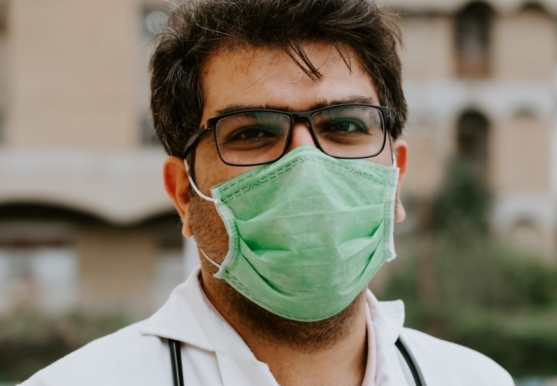On-Demand Webinars on Hot Topics in Pediatrics
These OPS-developed webinars — led by members and experts — are available for viewing. Contact education@oraap.org to learn more about getting free Continuing Medical Education (CME) or to suggest future webinar topics.
Being a Trauma-Responsive Practice

Being a Trauma-Responsive Practice
Recentering the Relationship: Becoming a Trauma-Responsive Practice
This webinar on trauma-informed care is designed to give tools for primary care pediatric providers.
-
Understand and learn how to assess barriers to safe, stable, nurturing relationships, and how they fit in with trauma-informed care.
-
Increase confidence in responding to sources of stress for families, supporting responsive relationships, and strengthen core parenting/life skills for families.
-
Become familiar with tools for promoting social-emotional health.
-
Learn how to implement resilience-based interventions.
Speaker: OPS member and AAP leader, RJ Gillespie, MD, MHPE, FAAP
RegisterBeing a Trauma-Informed Practice

Being a Trauma-Informed Practice
Recentering the Relationship: Becoming a Trauma-Informed Pediatric Practice
This webinar on trauma-informed care is designed to give a foundation to all primary care office staff in trauma-informed and relational care.
-
Review the science of toxic stress and the impacts of toxic stress on children and families.
-
Discuss the role of primary care in addressing trauma in practice.
-
Understand the role of healthy caregiver-child relationships in mitigating the effects of adversity.
Speaker: OPS member and AAP leader, RJ Gillespie, MD, MHPE, FAAP
RegisterBody Image & Disordered Eating

Body Image & Disordered Eating
Creating Sensory-Friendly Clinics

Creating Sensory-Friendly Clinics
- Examine how sensory friendly clinics promote care that is more informed by trauma, neurodiversity, and mental health.
- Identify common sensory issues and discuss how to address them.
- Examine best practices for shifting waiting rooms and clinic offices into sensory friendly spaces.
- Review and discuss learners’ favorite routines and strategies for self-regulation, and how these can positively contribute to a sensory safe space.
Gender Affirming Care 101

Gender Affirming Care 101
"More Than Medicine" - Creating Gender Affirming Environments for Gender Diverse Youth
This foundational webinar on gender affirming care is designed to help medical & behavioral health providers:- Explore context of care & needs of gender diverse youth in Oregon
- Analyze data surrounding gender affirming care
- Reflect on the gender spectrum
- Identify ways to support gender diverse youth & their families in clinic settings
Infection Control in Healthcare

Infection Control in Healthcare
Pediatric Anxiety 201

Pediatric Anxiety 201
Pediatric Anxiety 101

Pediatric Anxiety 101
- Consider the role of infant and early childhood mental health, including early relational health, as upstream promotion of mental health and early intervention to anxiety
- Review subtypes of anxiety
- Discuss how anxiety presents in the pediatric lifespan from prenatal to teens
- Identify appropriate anxiety screening tools
Positive Childhood Experiences

Positive Childhood Experiences
|
|
Universal Health Care Forum

Universal Health Care Forum
- Revising the financing versus the delivery system of care
- Private provider care in single-insurance systems
- The Primary Care Trust model
- Employer responsibilities and concerns regarding healthcare for employees
SBIRT in Telemedicine

SBIRT in Telemedicine
SBIRT in Telemedicine with Adolescent Patients
SBIRT (Screening, Brief Intervention, Referral to Treatment) represents an innovative, evidence-based approach to addressing substance use with adolescent medical patients. Its core components include:- Regular and universal screening in the medical setting, regardless of medical complaint.
- Universal and routine use of validated screening tools.
- Consideration of substance use as a continuum rather than a dichotomous “addicted versus not addicted” judgment.
- Use of patient-centered change talk versus directive, prescriptive talk.
- Facilitating smooth, bidirectional transitions between primary care and specialty addiction treatment.
- Recognize the importance of screening adolescents for substance use
- Screen patients for substance use via telemedicine
- Perform brief interventions with patients via telemedicine Target Audience: Pediatricians, child health providers, clinic supervisors, nurses, social workers, behavioral health workers, and clinic staff Presenter: Jim Winkle, MPH, has trained hundreds of physicians and clinic team members how to sustainably implement SBIRT workflows into primary care and emergency room settings. As the creator behind the sbirtoregon.org website, Jim has designed clinic tools, screening forms, and video demonstrations that have been widely adopted by health professionals around the country. Register
Suicide Prevention in Telemedicine

Suicide Prevention in Telemedicine
Youth Suicide Prevention in Telemedicine
On-Demand With added stress on families during COVID-19, behavioral health for youth is a pressing concern. Oregon Pediatric Society presents a webinar geared toward empowering primary care providers to manage potentially suicidal patients through telemedicine and warm handoffs. Presenters will discuss the use of the Ask Suicide Questions (asQ) screening tool and appropriate responses for positive screenings. Participants will be provided with interventions, tools for warm handoffs to behavioral health providers, and information about appropriate referrals to emergency departments during the COVID-19 pandemic. Target audience: Primary care providers who see pediatric patients , clinic supervisors, nurses, social workers, health educators, counselors, psychologists, behavioralists, and staff. Objectives: 1. Define youth suicide risk factors 2. Perform a suicide risk screen in a telehealth context 3. Indentify three possible responses to positive suicide risk screens 4. Develop steps for warm handoffs to appropriate care Presenters: This live stream event will feature child psychiatrists Kyle Johnson, MD, and Rebecca Marshall, MD, as well as Morgan Leets with Lines for Life. RegisterStaying Resilient in Adversity

Staying Resilient in Adversity
Staying Resilient in the Face of Prolonged Adversity
Using research from the field of interpersonal neurobiology, this short webinar provides concrete knowledge and tools to promote health during periods of overwhelm and toxic stress related to the COVID19 pandemic. How does exposure to toxic stress affect our bodies, minds, and spirit? How does it impact the quality of our decision-making? What knowledge and skills do we need to sustain our energy, focus, and compassion in order to deliver quality care? The webinar emphasizes increasing self-awareness and use of science-based mindfulness practices. Objectives: • Describe the way the autonomic nervous system works and ways learners can influence it to facilitate balance and health in the face of the pandemic’s prolonged adversity. • Understand the ways toxic stress affects our bodies, minds, and spirits and thus the quality of the care we provide to clients. • Identify and interrupt the self-protective defenses that interfere with harmonious team and family relationships. • Integrate mindful habits into daily work to bolster health and resilience in the face of toxic stress. Target Audience: Pediatricians, child health providers, clinic supervisors, nurses, social workers, behavioral health workers, and clinic staff Presenter: For over thirty years, Wayne Scott, MA, LCSW, has worked as a family therapist, teacher, clinical supervisor, and mental health and addictions program manager in outpatient, residential, and hospital settings in Chicago, Washington, D.C., and Portland. Currently, he teaches in the School of Social Work at Portland State University and maintains a private practice in Portland, OR. He has provided direct practice to high-risk clients as well as clinical supervision to practitioners in non-profit and healthcare settings. RegisterScreen Time Concerns

Screen Time Concerns
Firearm Safety with Rural Patients

Firearm Safety with Rural Patients
This one-hour session is led by Susan Keys, PhD, and Laura Pennavaria, MD. The content is meant to:
- Educate providers on rural firearm culture
- Teach providers how to communicate with patients at risk of suicide and with family members about firearm safety and safety planning
- Build provider awareness of community resources
Early Assessment for Psychosis

Early Assessment for Psychosis
- A better overall understanding of psychosis
- The ability to recognize the risk factors for developing psychosis/schizophrenia
- Stronger knowledge of the different phases of psychosis and how people’s needs are best addressed during each phase
- Increased awareness of resources for patients experiencing psychosis
Pediatric Transgender Health

Pediatric Transgender Health
- Learners will better understand some best practices and challenges that clinics, hospitals, school-based health centers, and community resources have in addressing gender variant patients
- Learners will have strategies for developing or building communicating skills when interacting with gender variant patients
- Learners will have relevant resources for working with gender variant patients.
Perinatal Depression Screening

Perinatal Depression Screening
- Emphasize the importance of screening
- Enhance provider understanding, utilization, and implementation of standardized screening tools
- Educate providers on proper documentation, coding, and billing of screening tools
- Build provider awareness of local community resources for evaluation and intervention
In-Person & Virtual Training Modules
OPS’s training sessions are designed for pediatric primary care teams (medical providers, nurses, medical assistants, mental health providers, and administrative staff), with a goal of implementing practice change and improving child and adolescent health care throughout Oregon. Training sessions cover how to implement standardized screening and improve understanding of assessment procedures, treatment, referral, and community resources.
We use a variety of training methodologies, including didactic lecture, group discussion, role play, and video demonstration. CME is offered for these sessions and Maintenance of Certification (MOC) – Part IV is available for post-training quality improvement projects.
Contact education@oraap.org for more information.
Available training topics are shown below.
Substance Abuse (SBIRT)

Suicide Prevention

Trauma & Resilience

Depression

Developmental Screening

